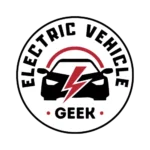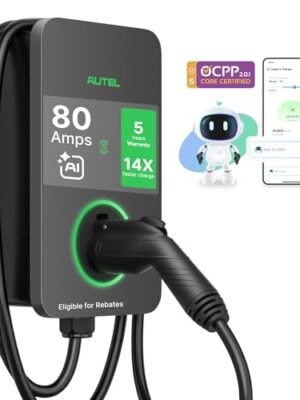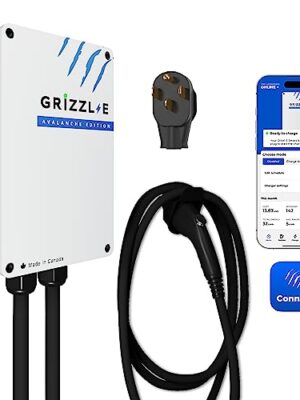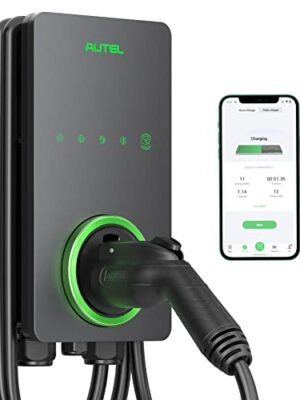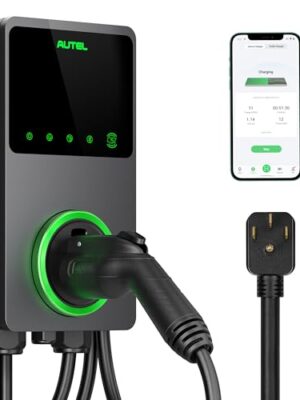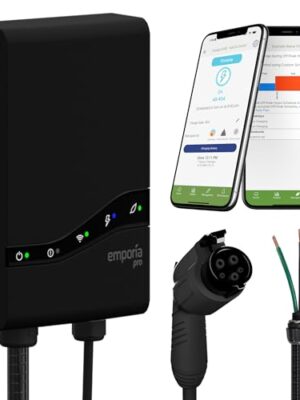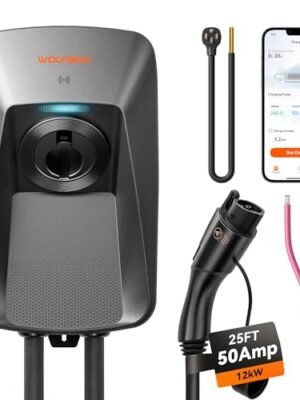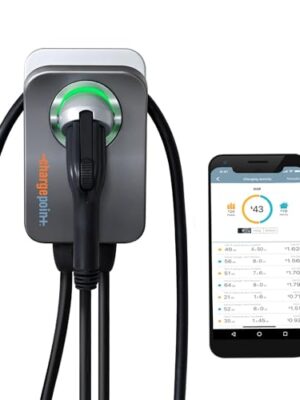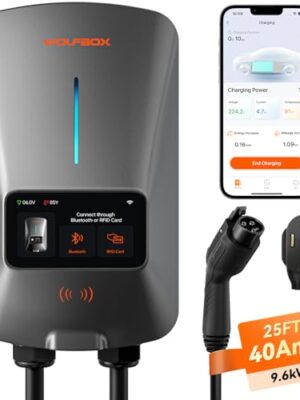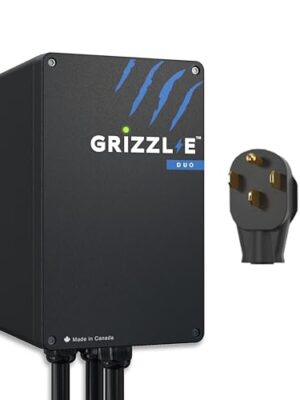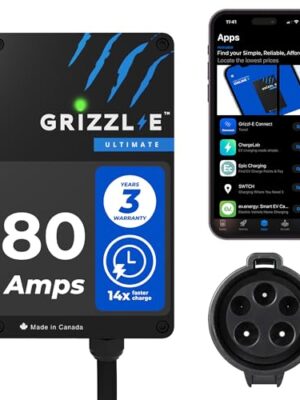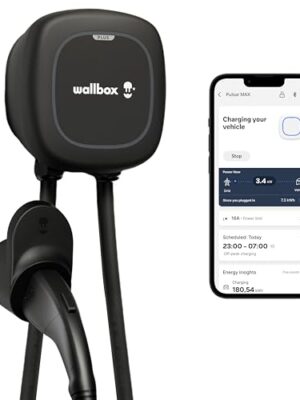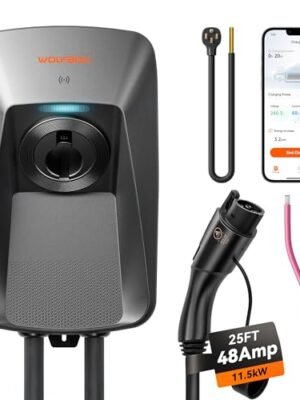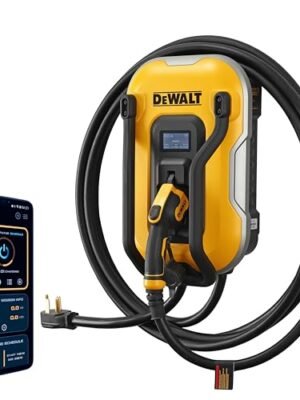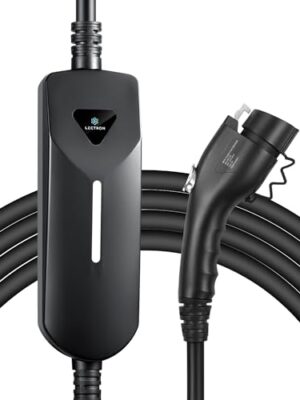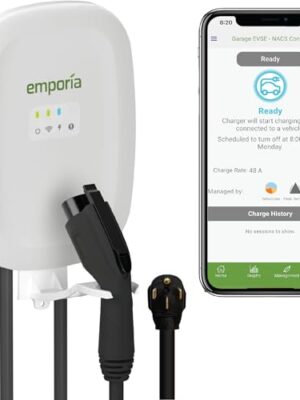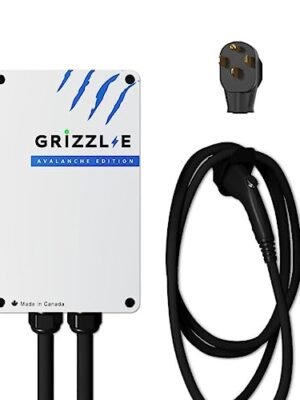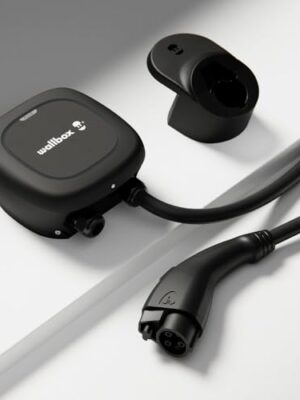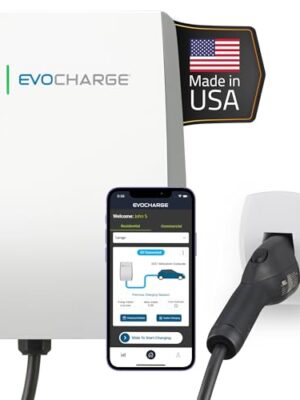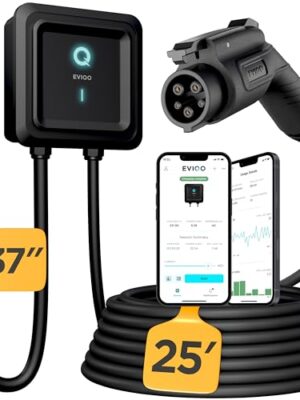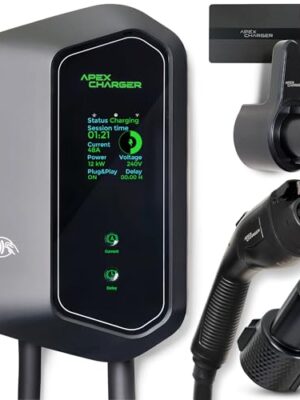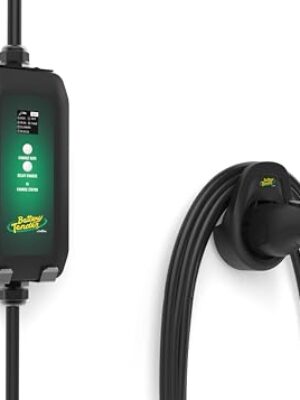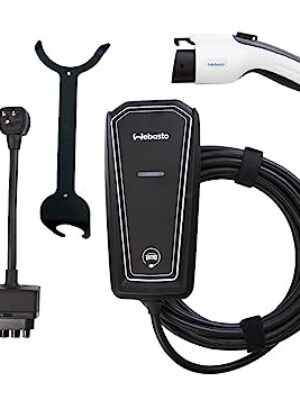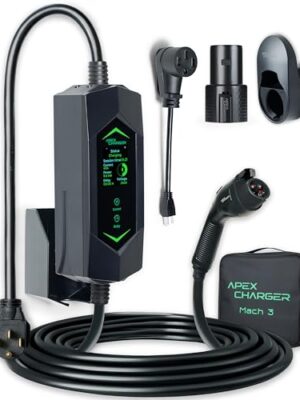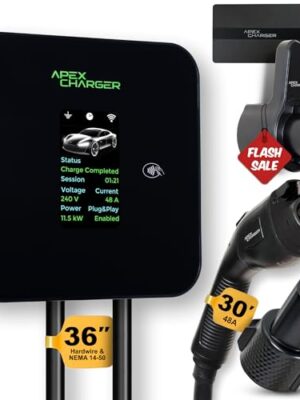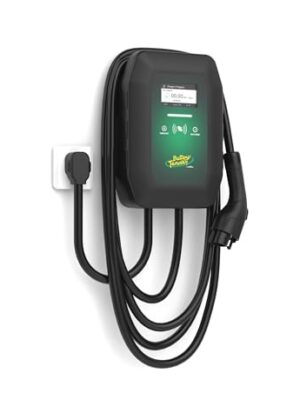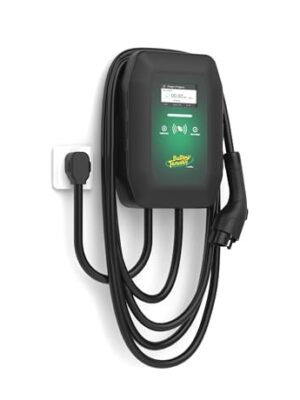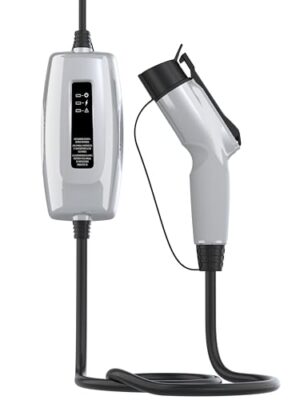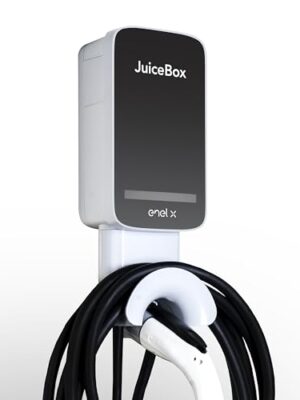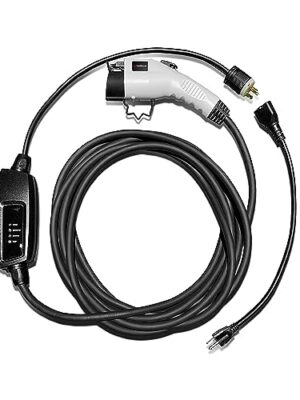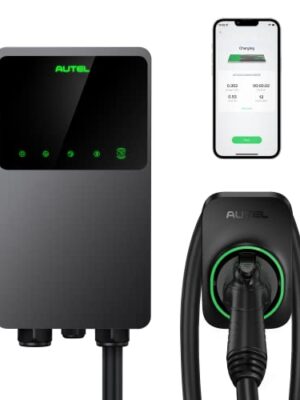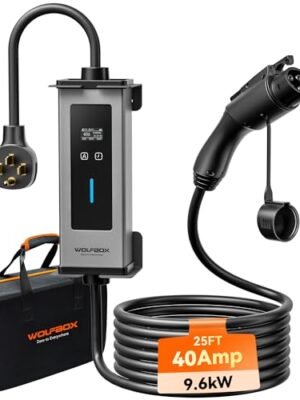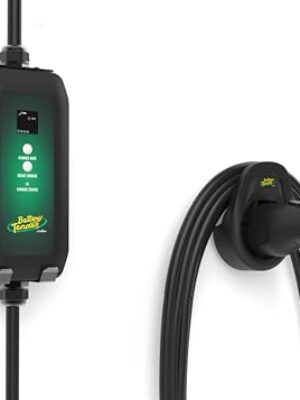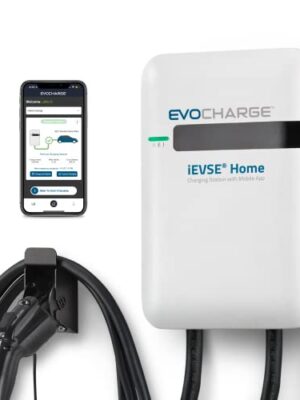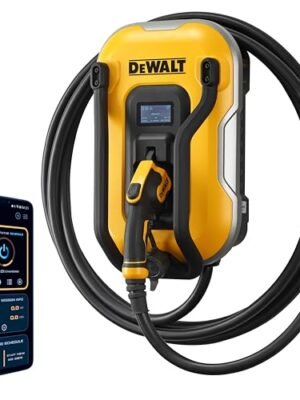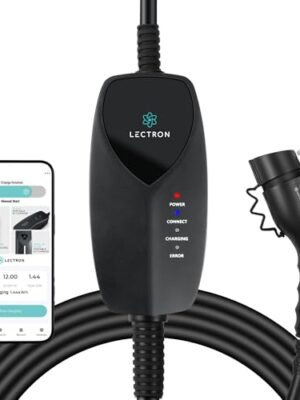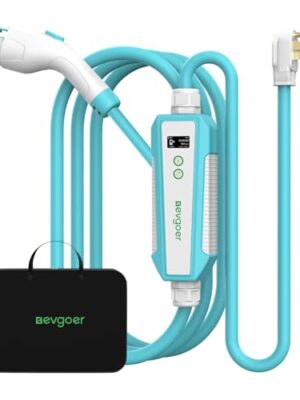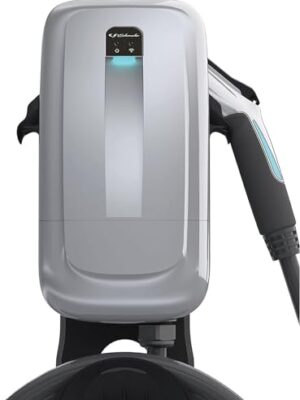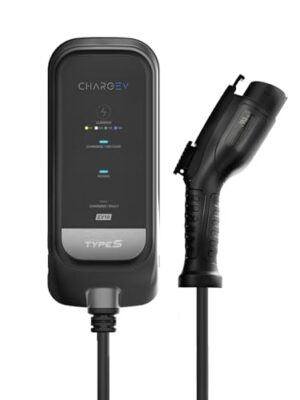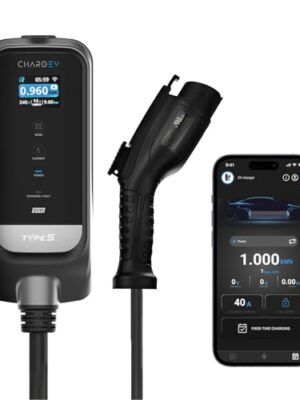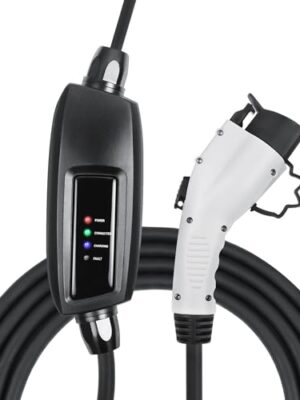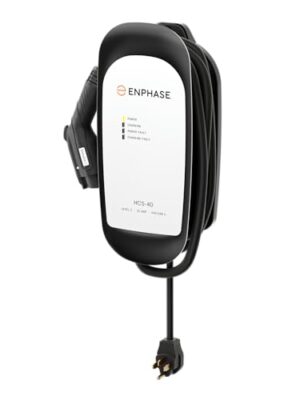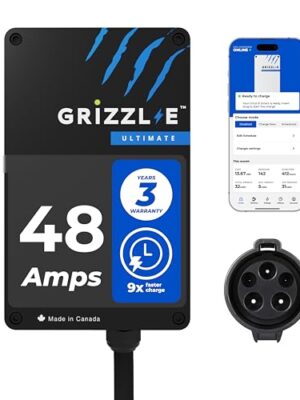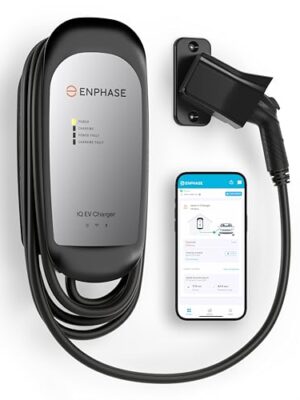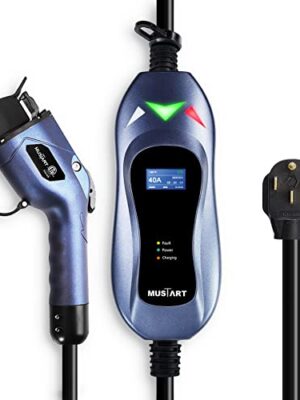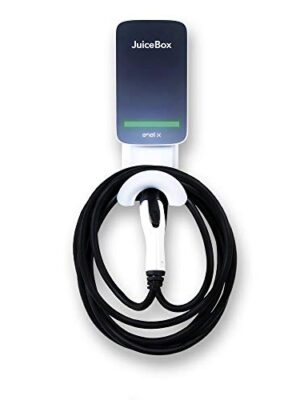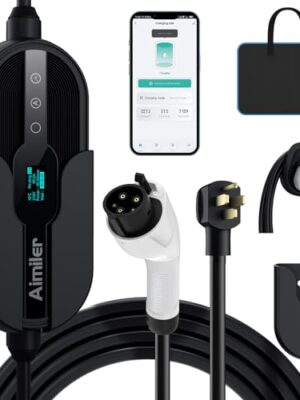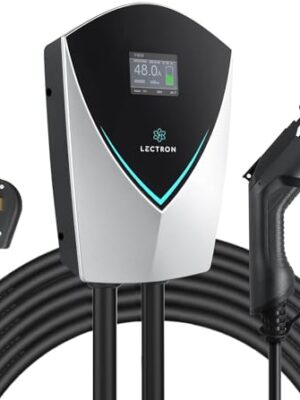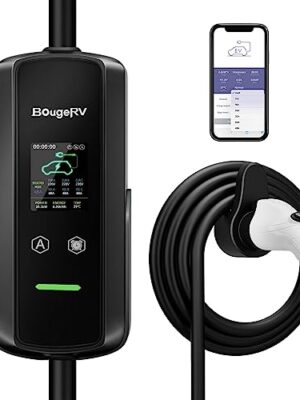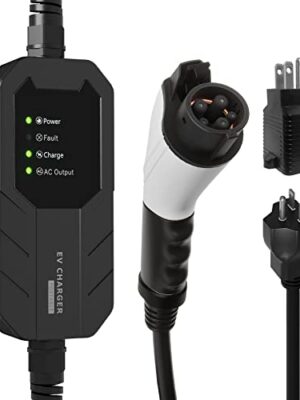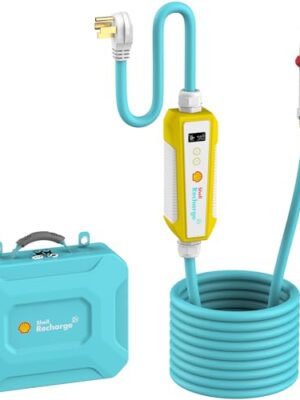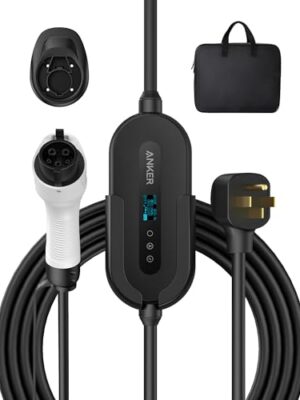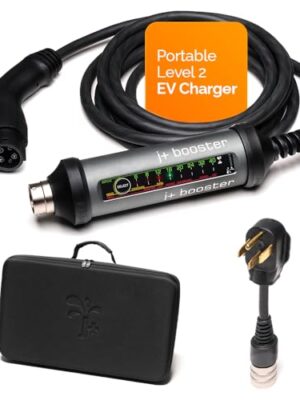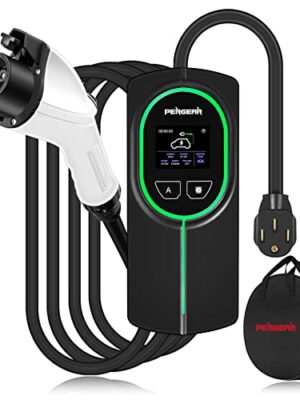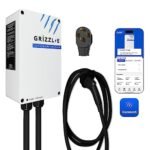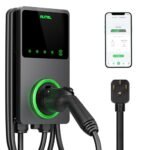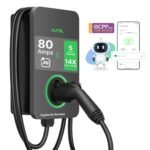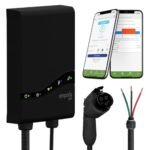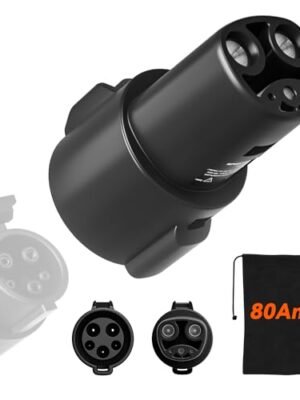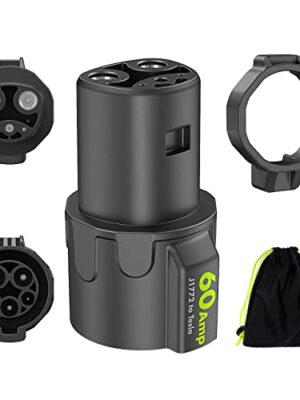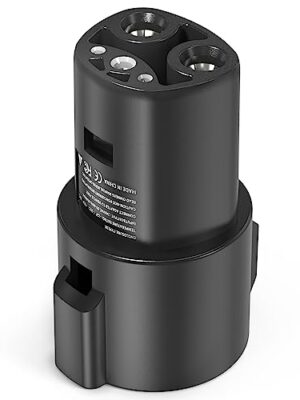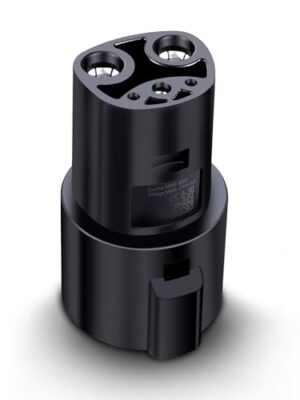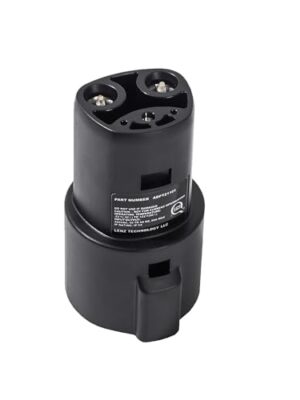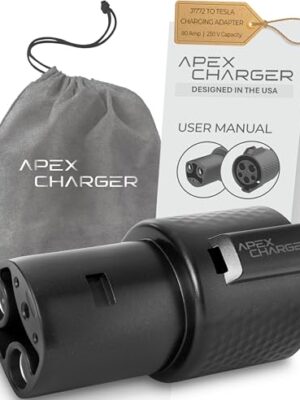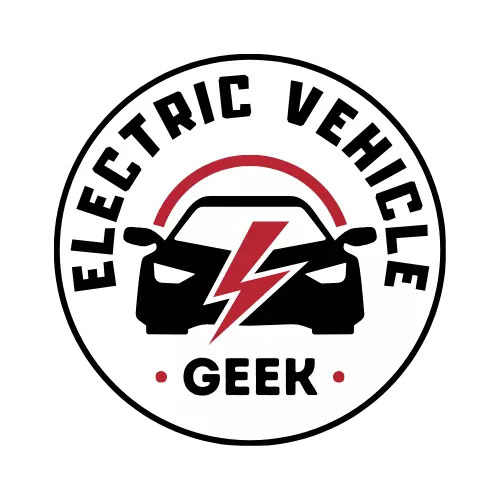Supported by you via insider access, and when you purchase through links on our site, we may earn an affiliate commission. See our Affiliate Disclosure.
SAE J1772 Charger Reviews 2025
-
 Best Picks By
James Ndungu
Best Picks By
James Ndungu
- last updated March 1, 2026
Use the “Compare” button on each product to select multiple chargers, then click the ⚖️ scale icon to see a full side-by-side comparison.
Explore reliable SAE J1772 chargers for home and public use. Each charger is rated and sorted on a comprehensive 1–10 scale for performance, build quality, safety, durability, design, brand reputation, and overall value, making it simple to compare and choose the best fit for your J1772-compatible electric vehicle.
Best SAE J1772 Chargers 2025
We’ve tested the most popular SAE J1772 chargers and compared them to other electric vehicle chargers on the market for home use. Here are the top J1772 chargers for the job.
- Overview
- Description
- Brand/Store
- Availability
- User Rating
- Review
- Charging Specifications
- Charging Level
- Adjustable Current (A)
- Power (kW)
- Rated Current (A)
- Electrical & Power Specifications
- Electrical Connection
- Voltage (V)
- Cable & Connector Specifications
- Cable Length
- Connector Type
- Connectivity & Smart Features
- Connectivity
- Certifications & Safety Standards
- Certification
- Warranty & Support
- Warranty
The Grizzl-E Smart Level 2 EV Charger (240V, 40A) is a budget-friendly smart EV charger with a rugged aluminum build, J1772 compatibility, UL-listed, Energy Star certified, and NEMA 14-50/6-50 plug support.
- Grizzl-E
- In stock
- -
- Features9Real World Usage9Materials9Durability9Craftsmanship9Design9Monetary Value9Product Value9Brand Reputation9Expert Valuation9
Level 2
16A, 24A, 32A, 40A
10 kW
40 Amps
NEMA 14-50, NEMA 6-50
240V
24 Feet
J1772
Wi-Fi
CSA, Energy Star, FCC, UL
3 Years
The Autel MaxiCharger Home Smart EV Charger (Autel AC Elite In-Body Holster EV Charger) offers NEMA 6-50 and 14-50 plug options for 40 amps and can be hardwired for 50 amps for faster charging. The built-in holster keeps the 25-foot cable organized, making it perfect for both indoor and outdoor use.
- Autel
- In stock
- -
- Features9Real World Usage8.5Materials9Durability9Craftsmanship9Design9Monetary Value9Product Value8.5Brand Reputation9Expert Valuation9
Level 2
16A, 24A, 32A, 40A, 48A, 50A
12 kW
50 Amps
Hardwired, NEMA 14-50, NEMA 6-50
240V
25 Feet
J1772
Bluetooth, Ethernet, Wi-Fi
CSA, Energy Star, FCC, UL
3 Years
Autel MaxiCharger 80A EV charger delivers 19.2 kW smart EV charging for home, business, or commercial use with OCPP 2.0.1, Integrated Cloud with AI, and Wi-Fi/4G/Wi-SUN connectivity.
- Autel
- In stock
- -
- Features9.5Real World Usage9.5Materials9Durability9Craftsmanship9Design9Monetary Value9Product Value9Brand Reputation9Expert Valuation9
Level 2
16A, 20A, 24A, 32A, 40A, 48A, 50A, 64A, 72A, 80A
19.2 kW
80 Amps
Hardwired
240V
25 Feet
J1772, NACS
Bluetooth, Cellular, Ethernet, Wi-Fi
CSA, Energy Star, FCC, UL
5 Years
Emporia Pro EV Charger offers 48A fast Level 2 EV charging with PowerSmart Load Management. Includes NEMA 14-50 plug or hardwire installation options, 25′ cable, and real-time energy optimization for efficient charging.
- Emporia
- In stock
- -
- Features9Real World Usage8.5Materials9Durability9Craftsmanship8.5Design9Monetary Value9Product Value9Brand Reputation8.5Expert Valuation9
Level 2
12A, 16A, 20A, 24A, 32A, 40A, 48A
11.5 kW
48 Amps
Hardwired, NEMA 14-50
240V
25 Feet
J1772
Bluetooth, Wi-Fi
CSA, Energy Star, FCC, UL
3 Years
A J1772 charger is a Level 1 or Level 2 EV charger that follows the North American J1772 AC charging standard and is compatible with most non-Tesla electric vehicles. It delivers safe, single-phase AC power through a five-pin SAE J1772 plug, also called a J-plug or Type 1 connector.
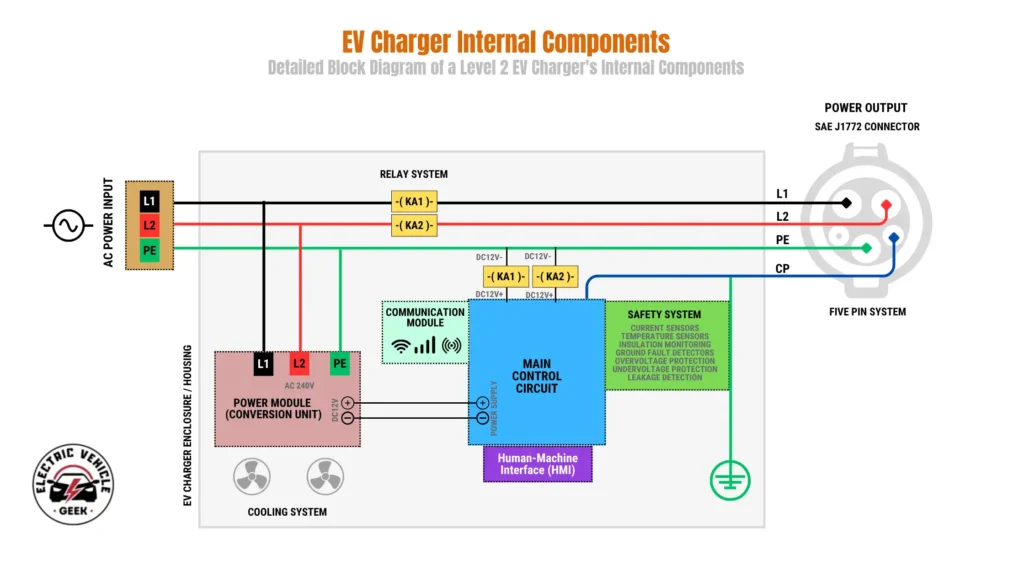
What is a SAE J1772 Connector?
The five-pin SAE J1772 connector, commonly called the J-plug or Type 1, is the standard AC charging interface for most North American and Japanese EVs equipped with an SAE J1772 inlet. It supports single-phase AC charging up to 19.2 kW and is the most widely used plug type for Level 1 (120 V) and Level 2 (240 V) home and public charging.

As shown in the SAE J1772 plug above, the J1772 plug features five pins (viewed from the outside) that integrate protective grounding, communication, and interlock functions to ensure safe and reliable charging.
L1 – AC Line 1
Carries the main AC power used for Level 1 and Level 2 charging. Provides one phase of supply voltage directly to the vehicle safely and reliably.
N – Neutral / Line 2
Serves as a neutral for 120 V Level 1 charging. In 208–240 V Level 2 operation, it functions as the second AC line to supply a higher charging voltage.
PE – Protective Earth
Acts as the grounding path for safety and fault protection. Ensures proper earthing to protect the vehicle and user during all charging conditions.
PP – Proximity Pilot
Detects plug insertion and signals the latch button. Prevents vehicle movement while plugged in and confirms connector presence to the system.
CP – Control Pilot
Provides communication between EV and charger. Negotiates charging limits, manages start/stop, and uses a 1 kHz signal for coordination and safety.
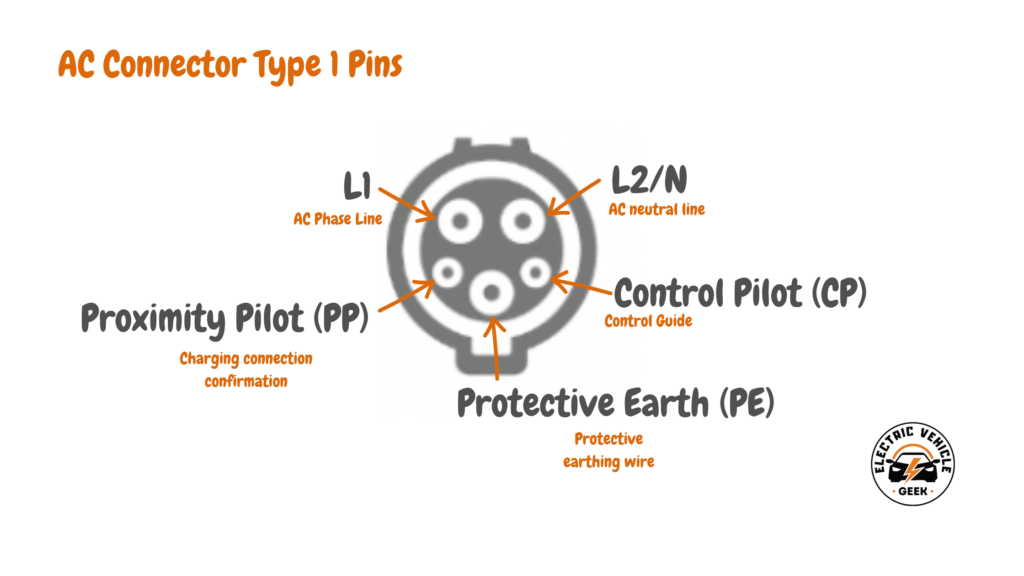
Every charger we review in this section follows this pin layout and SAE J1772 signaling/ communication protocol, ensuring reliable operation with compatible EVs. Physically, the connection pins are isolated on the interior of the connector when mated, ensuring no physical access to those pins. When not mated, J1772 connectors have no power at the pins; they are not energized until commanded by the vehicle.
SAE J1772 Charging Levels and Power Specs
The SAE J1772 standard defines two primary AC charging levels. These determine how quickly an EV can charge based on voltage, circuit size, and maximum current. Both levels use the same J1772 five-pin connector, but the power source and capacity differ.
AC Level 1 – 120 V Single-Phase Charging
Level 1 J1772 chargers are the most common entry point for home EV owners. It uses a standard 120-volt household circuit and is ideal for overnight charging. Portable J1772 chargers typically plug into common NEMA 5-15 outlets (delivering up to 12 A continuous, about 1.44 kW, on a 15 A breaker) or NEMA 5-20 outlets (up to 16 A continuous, roughly 1.92 kW, on a 20 A breaker). While slower than Level 2, Level 1 charging requires no special installation and works well for drivers with modest daily mileage.
AC Level 2 – 208–240 V Single-Phase Charging
Level 2 J1772 chargers uses 208–240-volt power and provides much faster charging speeds. Many units plug into 240 V outlets such as NEMA 6-20 (up to 16 A), NEMA 14-30 (around 24 A), or the popular NEMA 14-50 (40 A continuous, about 9.6 kW). Higher-capacity Level 2 equipment can also be hardwired, supporting 24–80 A continuous current with breaker ratings from 30–100 A, delivering up to approximately 19.2 kW. This flexibility allows you to select the right outlet and charger capacity for your vehicle and electrical system.
Can a J1772 Charger Charge a Tesla?
Yes, you can charge your Tesla with a J1772 charger; you’ll just need a J1772-to-Tesla adapter. This inexpensive, easy-to-use accessory bridges the J1772 plug to your Tesla’s port, making it simple to use nearly any SAE J1772 charger and share it with Tesla-owning family or friends.
The J1772-to-Tesla adapter is essential because the J1772 connector doesn’t fit directly into a Tesla’s charging port. It simply plugs into the J1772 charger handle on one end and the Tesla port on the other, allowing safe and convenient charging.
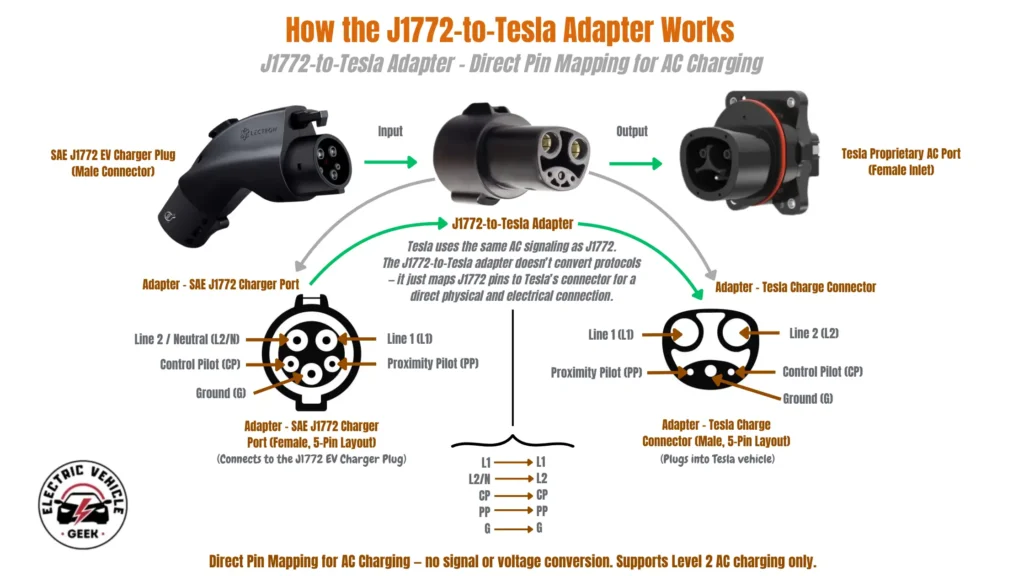
Choosing the Right J1772 Charger
Before you buy any charger in this section, make sure your EV has a SAE J1772 inlet or that you have the right adapter. This step is important for safe charging and full compatibility.
Use our J1772 EV charger custom filter to find the best J1772 charger for your needs. With it, you can compare chargers by brand, charging level (Level 1 at 120 V or Level 2 at 240 V), voltage, maximum power output measured in kilowatts (kW), maximum rated current measured in amps (A), and all available adjustable amperage configurations. You can also sort by power input type, such as plug-in or hardwired, cable length measured in feet, smart feature support, and safety or certification compliance.
Our J1772 EV charger filter ranks products by editor rating, making it easy to find and compare chargers that fit your car, home electrical setup, and performance needs.
You can also use the “Compare” button on each product to select multiple SAE J1772 chargers. Then click the ⚖️ scale icon to see a full side-by-side comparison of editor scorecard, charging level, amperage, kilowatts, connector type, cable length, voltage, power input, and other specifications.
Popular Electric Vehicles Compatible with SAE J1772 Chargers
The SAE J1772 connector is the standard Level 1/2 AC charging plug used across North America, making it compatible with nearly all electric vehicles (EVs) and plug-in hybrid electric vehicles (PHEVs) sold in the U.S., except Tesla, which uses its own connector but supports J1772 charging through an adapter.
The table below highlights popular EVs and PHEVs in the U.S. that support J1772 chargers, helping you quickly identify which models work seamlessly with home and public Level 1/2 charging stations. Whether you’re shopping for your first home EV charger or upgrading your setup, choosing a J1772-compatible charger ensures universal compatibility, reliable performance, and future-ready convenience.
| Vehicle Manufacturer | Popular EV / PHEV Models (USA) |
|---|---|
| Alfa Romeo | Tonale Plug-in Hybrid |
| Audi | Q4 e-tron, Q8 e-tron, e-tron GT |
| Bentley | Bentayga Hybrid, Flying Spur Hybrid |
| BMW | i4, i5, i7, iX |
| Chevrolet | Bolt EV, Bolt EUV, Blazer EV, Equinox EV, Silverado EV |
| Fiat | 500e |
| Ford | Mustang Mach-E, F-150 Lightning, E-Transit |
| Genesis | GV60, Electrified G80, Electrified GV70 |
| Honda | Prologue |
| Hyundai | Ioniq 5, Ioniq 6, Kona Electric |
| Jaguar | I-PACE |
| Jeep | Grand Cherokee 4xe (PHEV), Wrangler 4xe (PHEV) |
| Kia | EV6, EV9, Niro EV |
| Land Rover | Range Rover PHEV, Range Rover Sport PHEV |
| Lexus | RZ 450e |
| Lucid Motors | Air |
| Maserati | Grecale Folgore, GranTurismo Folgore, GranCabrio Folgore |
| Mazda | MX-30 |
| Mercedes-Benz | EQB, EQE, EQS (Sedan/SUV), Maybach EQS SUV |
| MINI | Cooper Electric, Countryman Electric |
| Mitsubishi | Outlander PHEV |
| Nissan | Leaf, Ariya |
| Polestar | Polestar 2, Polestar 3 |
| Porsche | Taycan, Panamera S E-Hybrid |
| Rolls-Royce | Spectre |
| Subaru | Solterra |
| Toyota | bZ4X, Prius Prime (PHEV), RAV4 Prime (PHEV) |
| Volkswagen | ID.4 |
| Volvo | XC40 Recharge, C40 Recharge, EX30, EX90 |
Get a Personalized SAE J1772 Charger Recommendation
Save up to 20% on your home EV charger, and even more on total project costs, by sourcing smarter. Click the button below to find the best charger for your EV and home setup now!You’ve Got J1772 Charger Questions, We’ve Got Answers.
